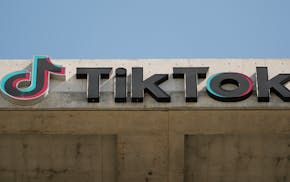A perennial wheatgrass thought to be better for soil health is getting commercial backing from organic food maker Cascadian Farm and its parent company General Mills.
Cascadian Farm announced Tuesday a partnership with the Land Institute to help commercialize production of intermediate wheatgrass trademarked as Kernza, a wild relative of annual wheat.
Kernza has a much deeper root system than common wheat. It has been shown to increase soil health, water retention, carbon capture and improve wildlife habitat surrounding its crop lands.
"The length, size and long life of the roots enable the grain to provide measurable soil health benefits and drought resistance while preventing soil erosion and storing critical nutrients — potentially turning agriculture into a soil-forming ecosystem," said Dr. Lee DeHaan, lead scientist at the Land Institute, in a statement.
General Mills is promising to buy an undisclosed amount of Kernza from the Land Institute to use in Cascadian Farm, a line of organic cereals and other products it has owned since 2000.
Kernza has been commercially available in some niche markets, but it has so far lacked the support of a major company to assure farmers that there is a market for it.
"This is meant to stimulate the market," said Jerry Lynch, chief sustainability officer for General Mills. "We have farmers we have contracted with and, once we see how big the harvest is next fall, we can get a sense of our scale."
The grain is sweet and nutty in flavor, lending itself to cereals and snacks. Still, the taste is different from that of common wheat, so General Mills will be testing consumer acceptance.
"This looks much more like a grass seed, it's long and thin. It's got more bran and fiber in it and less raw carbohydrate in it," Lynch said. "As a result, the flour that comes off it has a nuttier taste to it."
Golden Valley-based General Mills also agreed to give $500,000 to the Forever Green Initiative at the University of Minnesota. This money will be used to conduct advanced research on Kernza's ability to reduce greenhouse gas emissions in food production and increase the grain's yields through breeding.
The Kernza grass produces much smaller yields than common wheat. General Mills has been working with university researchers on this grain for four years. The company hopes the three-year grant will result in the development of higher yields through breeding.
"Realistically, you've got to believe that to develop this even from a small niche crop to a small commodity crop is going to take the better part of a decade," Lynch said.
Still, some of the grain likely will be in Cascadian Farm products by early 2018.
Kristen Leigh Painter • 612-673-4767
Thai plastics firm will pay $20 million to settle with U.S. over Iran sanctions violations
Biden administration moves to make conservation an equal to industry on US lands
Stock market today: Wall Street limps toward its longest weekly losing streak since September

